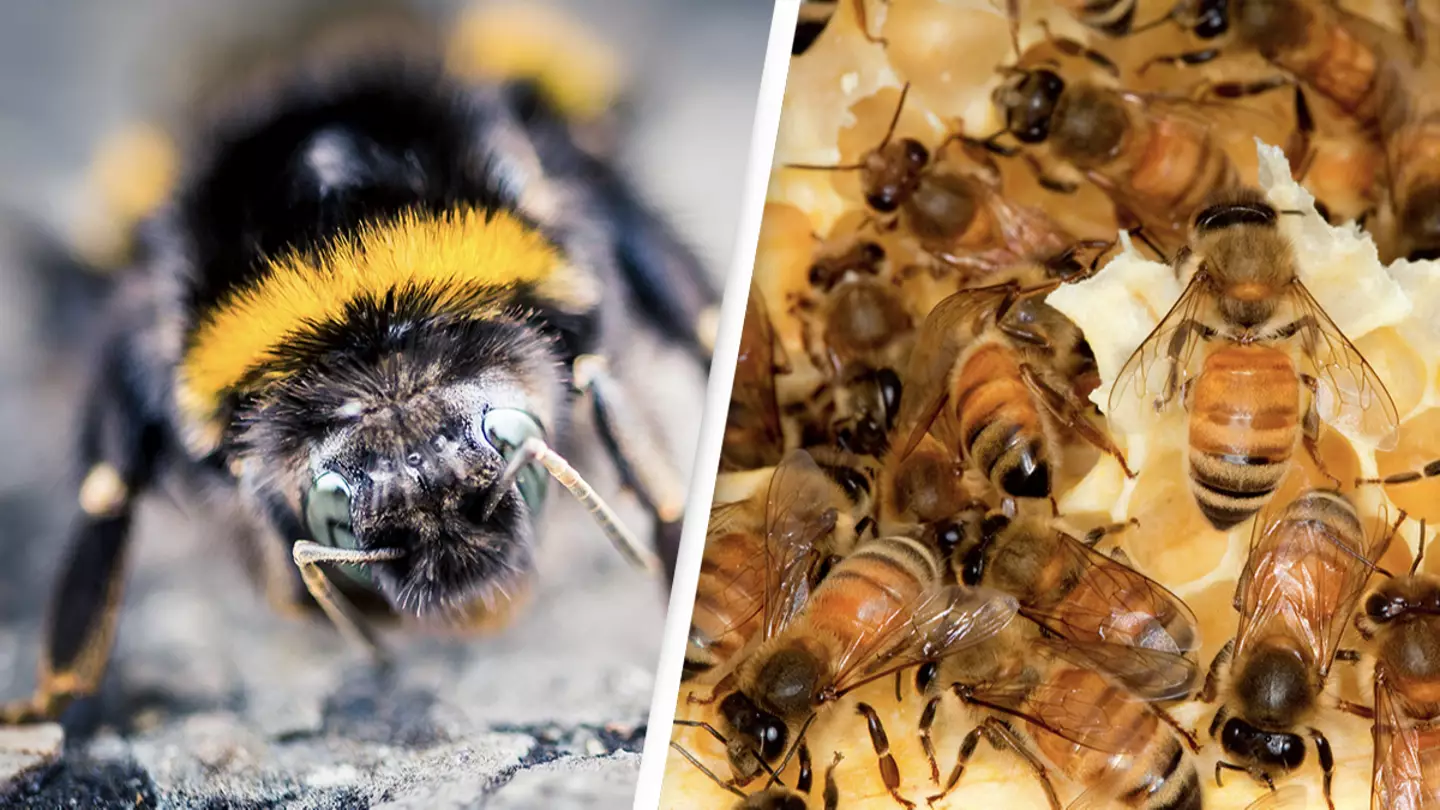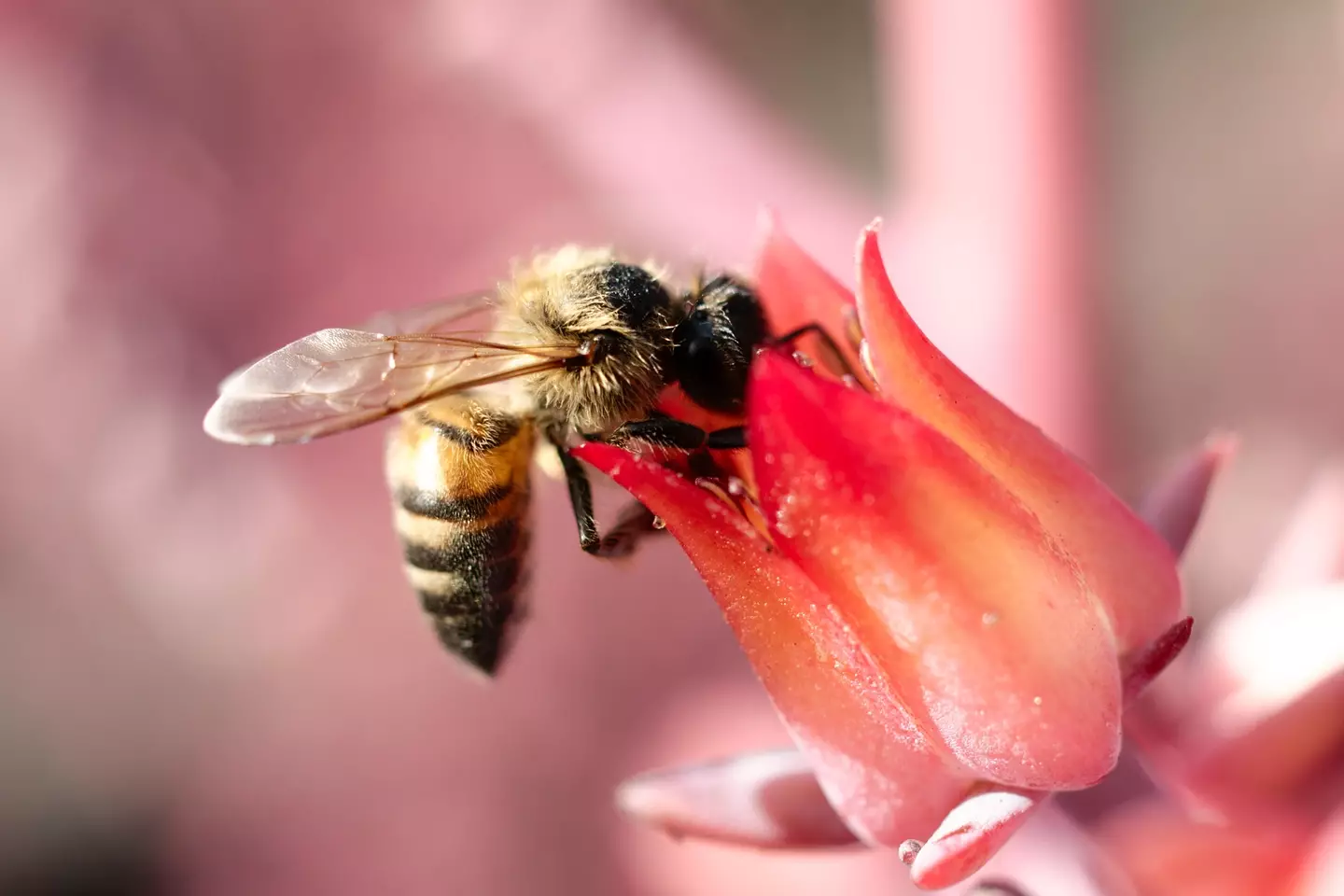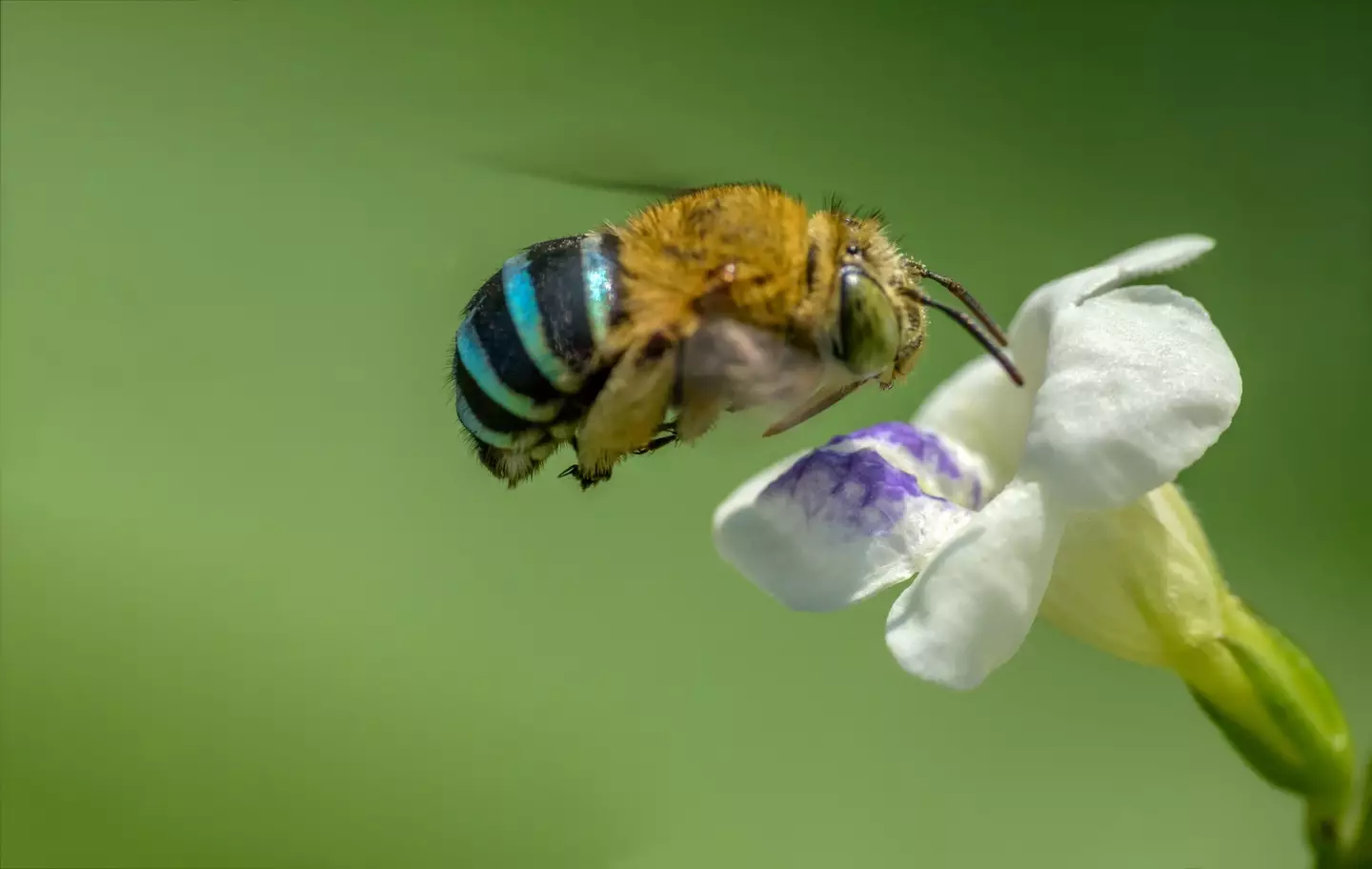
The world’s honeybees are under threat from a virus that affects their wings, a leading scientific expert has warned.
Obviously, it’s common knowledge that the world’s bee population is really vulnerable at the moment, with many factors – not least human-driven causes – threatening their very existence.
That’s bad news for us, because bees are seriously important to global ecology.
Advert
As pollinators, they’re responsible for helping flowers and crops grow, and without them it surely wouldn’t be too long before the human race was struggling as well.
Anyway, there’s a newly discovered problem on the horizon for the poor honeybees at the minute, with a deadly virus called the Deformed Wing Virus representing the ‘biggest threat’ to them right now, according to a top scientist.
Professor Dr Robert Paxton from Martin Luther University Halle Wittenberg in Germany says that the virus has all the potential to wipe honeybees off the face of the planet.

Paxton, who is the head of the General Zoology department at the university in Lower Saxony, said: "The Deformed Wing Virus is arguably the biggest threat to honeybees right now.
Advert
“Our lab research has shown that the new, highly contagious variant is killing bees faster."
The new variant of the virus caused serious damage to the wings of the honeybee before then killing them.
It has been detected by a top set of scientists from around the world who have been studying this virus for two decades.
The illness is spread by varroa mites that invade beehives and reproduce by laying eggs on pupa.
Advert
Paxton added: "Mites don't just spread viruses. They also eat bee pupa."
If the mites aren’t picked up and treated in the early stages, they can infect all the bees in a hive and ruin the whole thing.
Paxton continued: "Our analysis confirms that the new variant is already the dominating force in Europe.
“We fear that it's just a matter of time before it will have forced its way all over the world."
Advert
So, Paxton issued a warning to beekeepers to watch out for signs of the mites in order to protect their hives from infection.

He said: "Basic, general hygiene measures for the hive are paramount for beekeepers when it comes to protecting their colonies from the varroa mite."
"Bees are the most important creature for mankind and the environment."
Advert
There are only eight recognised species of honeybee left in the world, with 43 subspecies.
They represent just a small portion of the 20,000 or so recognised species of bees around the world.
As Paxton says though, we need the bees, so we need to do everything we can to protect them before it is too late.
If you have a story you want to tell, send it to UNILAD via [email protected]
Topics: Animals, World News
